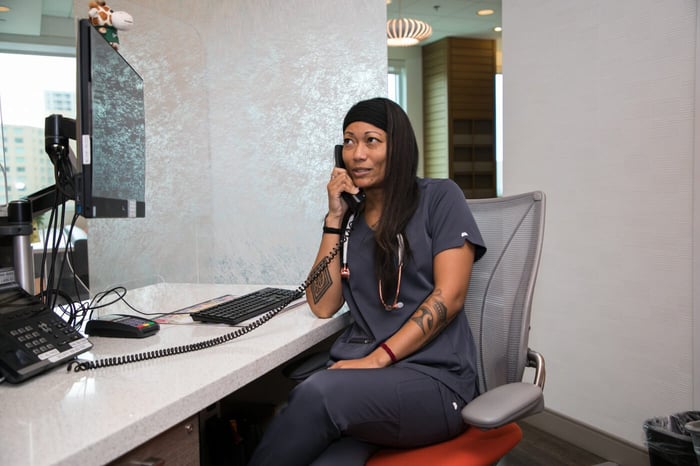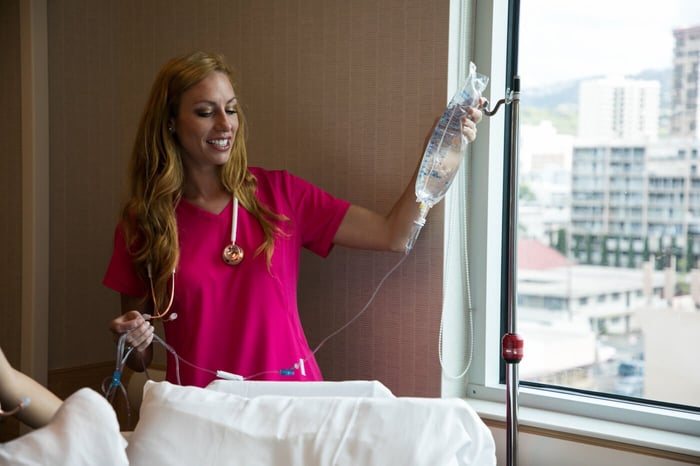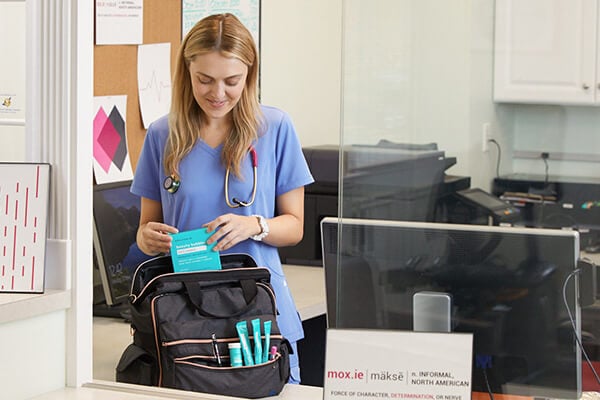A Unique Type of School Nursing: A Day in the Life of a Boarding School Nurse
Written by Donna Reese, RN, MSN
If you are a school nurse or are curious about the day-to-day job of a healthcare practitioner in a school system, you may find this article shows you a side of school nursing you haven’t seen before- that of a boarding school RN. The RN working at a campus where students live year-round is similar to that of a public-school nurse but with an extraordinary twist.
In Loco Parentis
Typically, children living in a boarding school have a "house parent" or guardian employed to care for the students 24/7. In the absence of the parent, this school employee works “in loco parentis”, where they assume the place or position of the parent for day-to-day care and decisions for the student.
When medical care and decisions need to be made for a student, the health providers, RNs included, assume in loco parentis. This doesn’t mean that the parents and house parents are left out of the loop when making decisions about health care for a student, but school nurses in a boarding school are given an extra layer of responsibility. Certain tasks that a parent assumes typically are transferred to the RN in this scenario.
Examples of additional nursing responsibilities are as follows:
-
Communicating between the healthcare team, teachers, parents, and guardians of the students. Although the nurses do not attend follow-up appointments with doctors, they need to "get report" after any procedures, surgeries, or healthcare provider visits. From there, the school nurse is responsible for making sure that all medical instructions are followed precisely.
-
Schedule student follow-up appointments with all providers and at the school clinic to ensure that they are progressing as expected.
-
Arrange for all aspects of home medical care in the boarding school home and for holidays at the student’s actual home. This is especially important as they manage students with diabetes and other complex medical conditions, such as cystic fibrosis, growth disorders, and rheumatoid arthritis.
-
Make all arrangements for blood work, medical testing, procedures, and surgeries. This includes transportation to and from any medical appointments.
What Are Some Differences Between Public School Nurses and Boarding School Nurses?
Typical school nurse responsibilities take place during school hours. Once the RN is “off duty”, the child’s parents take over all care, medical needs included.
For reference, some everyday tasks of a conventional school nurse are:
-
Care for sick and injured students while in school
-
Perform state mandated screenings such as vision, hearing, height and weight
-
Keep track of immunizations and medical records
-
Develop and implement health care plans for students with special medical needs
-
Health teaching and counseling
A boarding school nurse is responsible for the school time medical management as listed above. In addition, they assume around-the-clock medical care for the students. When the school day is over, the RN needs to make sure that the child is safe and medical treatment continues as needed after school hours.
Once a child is assessed and treated at the school health clinic, the nurse develops a plan to ensure that everyone responsible for the student is kept up to date on the treatment goals and followed to provide the best outcome for the child’'s health.
This continuation of care can be accomplished in 4 ways.
-
After school, the child goes to the dorm or student home with a medical treatment plan in place. The treatment plan is developed by the RN, who then educates the student and the guardian about the specifics. This includes any medications and instructions on how they should be taken, over-the-counter care, and emergency guidelines. In addition, a follow-up appointment with the school nurse is scheduled for an appropriate time frame.
-
The school nurse provides a plan of care and health education for the parents before the student returns home for an extended school break. The RN helps to work out any financial or logistic problems that the parent may experience to make a smooth and safe transition of care to the parent.
-
If the student is acutely ill, experiencing severe mental distress or needs complex medical treatment, the school nurse will arrange for an immediate admission to the inpatient medical facility on campus, which may be available at some boarding schools. .
-
For emergency care that requires an outside consultation or immediate surgery, the RN will make all arrangements for transportation to the appropriate facility and maintain contact with the outside medical provider throughout the student’s time away from campus.
As you can see, school nurses are very autonomous in this specialty area. Although there are physicians on campus to consult as needed, standing orders and provider trust in the nurses allow the RNs to take charge of many aspects of the students’ medical care.
Inpatient Care in Addition to Outpatient Services: Another Bonus!
Providing inpatient services to the students is another interesting characteristic of this unique job as a school nurse.
One of the ways that school nurses manage 24/7 healthcare for the students is to provide overnight medical care at the school’s inpatient health center. Previously called an infirmary, some larger boarding schools have hospitals to care for their students who are too ill to return to their dorm. Here they keep the sickest students, those who are admitted for surgery, provide pre and post-op care and mental health treatment.
Some schools have adapted their medical facility to include Covid units with negative pressure isolation rooms to accommodate serious infectious diseases.
The Best of Both Worlds
Nurses who love school nursing are bound to be impressed by this alternate school nursing model. With physicians on campus to consult at a moment’s notice, this support and collaboration furthers the school nursing profession. In addition, on the larger campuses, a full team of medical personnel is provided. Most school nurses are used to being lone wolves in their clinics. Therefore, having other nurses and support staff is a bonus. To be able to actually leave the clinic and have nursing coverage along with buddies to go to lunch with is unheard of in a typical school nurse position.
For RNs who want variety and keep up to date with their hands-on nursing skills, working at the inpatient medical facility as well as the school-based clinics will check off all boxes. Although there are not many positions of this sort, nurses who are fortunate enough to find such a job should enjoy the full benefit of taking care of children long-term in both an outpatient and inpatient capacity. Indeed, the position of a boarding school nurse is a fulfilling and satisfying career.
About the Author
Donna Reese (RN, MSN) is a nurse with extensive experience in pediatrics and adult health. She has worked as a family nurse practitioner in her local community health clinic and as a school nurse working with children of all ages. In addition, Donna has been a nurse on 2 pediatric hospital units and several home health agencies. Now employed as a freelance health content writer, this mother of 2 daughters thoroughly enjoys working from home in the state of Pennsylvania. When not creating health publications and blogging, Donna relishes time spent outdoors with her husband and large extended family.
References
https://www.cdc.gov/coronavirus/2019-ncov/hcp/long-term-care.html




